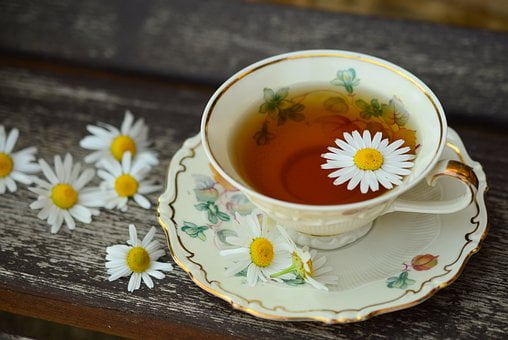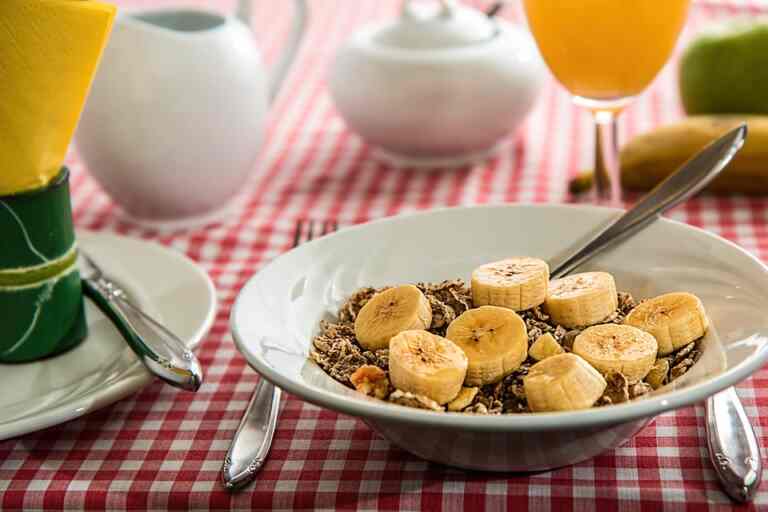Can A Daily Cup Of Tea Boost Your Heart Health
Can a daily cup of tea boost your heart health? You may already know that tea is good for you. But did you know it could be especially beneficial for your heart? It’s true! Recent studies have found that drinking a daily cup of tea can contribute to a healthy heart.
So why is tea so great for your cardiovascular system? Tea has tons of antioxidants, which can help protect against cell damage caused by free radicals. Drinking tea can also help reduce stress levels, lower blood pressure and improve cholesterol levels—all of which are important for maintaining a healthy heart.
In addition, some teas contain plant compounds known as flavonoids. These compounds have been shown to play an important role in fighting inflammation and protecting the lining of the heart from damage due to oxidative stress.
So if you’re looking for a way to boost your heart health, why not give tea a try? A daily cup could be just what your heart needs!
What Are the Potential Heart Health Benefits of Drinking Tea?
Tea is not a miracle cure for heart health issues, but there is evidence that compounds found in tea, specifically polyphenols and flavonoids, can be beneficial for your heart. For starters, polyphenols are associated with reduced risks of developing hypertension as well as lowering cholesterol levels. Flavonoids have also been linked to improved vascular function and overall lower risk of mortality from cardiovascular diseases.
Additionally, tea may help lower the risk of developing atherosclerosis – the buildup of plaque in arteries which is linked to heart disease – due to its antioxidant properties. And if you’re suffering from high blood pressure or cholesterol, drinking green or oolong teas can help improve those markers over time.
So while there’s no one-size-fits-all answer when it comes to how tea may help your heart health, it certainly provides an array of potential benefits that research suggests could make a difference in your overall health—and certainly worth pouring yourself a cup of tea each day and giving it a try!
What Types of Tea Are Best for Promoting Heart Health?
So, what type of tea should you look for if you want to keep your heart healthy? According to research, green and oolong tea are the two that may be of most use.
Green Tea
Green tea is naturally full of catechins — antioxidants with powerful anti-inflammatory properties. Studies suggest that the catechins in green tea can help prevent oxidative stress, which is caused by an accumulation of unhealthy molecules, and can ultimately damage cells. By drinking green tea every day, you might reduce your risk of cardiovascular diseases by as much as 31 percent.
Oolong Tea
Oolong tea is made from leaves that are partially oxidized before they’re heated and dried. Research suggests that this process helps to increase the level of antioxidants in the tea leaves. Antioxidants help to protect your cells from damage caused by free radicals and other potentially harmful agents in your body. By drinking 1-3 cups per day, you can significantly lower levels of bad cholesterol and triglyceride levels — both major risk factors for cardiovascular diseases.
Overall, experts agree that enjoying a cup or two (or three!) every day could help keep your heart healthy for years to come.
Does Drinking Tea Replace Medication for Heart Health?
You may be wondering, “can a daily cup of tea replace my medications for heart health?”
Unfortunately, no. Tea is a great addition to your wellness routine. But it will not replace the actions your doctor has prescribed for you.
However, it can provide additional health benefits which can help with overall heart health. Let’s explore these further:
Containing Antioxidants
Tea contains antioxidants which fight cell damage and help protect against certain diseases. The main antioxidants in tea are catechins. Which have been linked to reducing cholesterol levels and decreasing the risk of heart attack and stroke.
Reducing Inflammation
Drinking tea regularly can help reduce inflammation in the body. As well as improve your blood vessel function and reduce arterial stiffness — all of which helps in preventing the buildup of cholesterol deposits that can lead to clogged arteries.
Improving Blood Pressure
Tea also helps improve circulation by increasing flexibility and elasticity in the arteries. This helps increase blood flow and lowers blood pressure, both of which benefits your entire cardiovascular system.
Tea provides several potential benefits to your heart health — just don’t forget to follow up with your doctor if you have any concerns or think that you need a change in medication.
How Can You Incorporate Tea Into Your Daily Routine?
You’ve learned that tea offers a variety of beneficial effects on your cardiovascular health, but how can you make sure you’re getting enough of it? Here are some simple ways to incorporate tea into your daily routine:
- Start the Day with Tea: Set yourself up with a hot cup of tea every morning. It’s the perfect way to warm up and wake up your body and mind.
- Try Different Flavors: Spice up your morning routine by experimenting with different flavors of tea, such as chamomile, peppermint, and green tea. There’s something out there for everyone!
- Sip During the Day: Keep yourself energized and focused by incorporating tea breaks throughout the day—you’ll be surprised at how much of a difference in energy level this can make!
- Drink Before Bed : Make sure you get your daily cup of tea before bed—it can help promote feelings of calmness before you drift off to sleep.
With just a few easy steps each day, it’s easy to make sure that you’re getting all the heart-healthy benefits that a cup of tea has to offer.
What Are the Risks Associated With Drinking Too Much Tea?
Of course, like with any food or beverage, there can be risks associated with drinking too much tea. If you’re going to include cup of tea into your daily routine. It’s important to be aware of these potential dangers:
Over-consumption
Drinking more than four cups of tea a day has been linked to a variety of ailments. Too much caffeine can cause problems ranging from headaches and insomnia to heart palpitations and tinnitus. Additionally, consuming high amounts of polyphenols can lead to kidney stone formation and liver toxicity.
Interaction with Other Medication
Certain medications may interact negatively with the caffeine in tea, such as some anti-depressants and anti-anxiety drugs. Be sure to check with your health care provider before including tea in your daily routine. If you are taking any type of medication or supplement.
High Blood Pressure Risk
If you have high blood pressure or other cardiovascular issues, it’s best to limit your intake. Too much caffeine can cause a spike in blood pressure levels due to its stimulating effects on the body.
It’s also important to remember that green teas are especially potent when it comes to certain beneficial compounds. So if you’re drinking several cups each day for health benefits, make sure you stick with one type (green or black) so that potential adverse effects from excessive consumption don’t arise.

What Foods Pair Well With a Cup of Tea to Promote Heart Health?
Not only can a daily cup of tea boost your heart health. It’s even more beneficial when paired with specific healthy and delicious foods. Here are some of the best foods to enjoy alongside your tea for optimal heart health benefits:
Leafy greens
Leafy greens like spinach, kale and Swiss chard are packed full of antioxidants and anti-inflammatory nutrients. The flavonoids in tea work together with the vitamins in these leafy greens to help keep your cardiovascular system strong and healthy.
Berries
Berries are loaded with antioxidants that help protect our bodies from damaging free radicals. The resveratrol in berries acts as an anti-inflammatory agent. It can help improve cholesterol levels and reduce plaque buildup in our arteries, helping to keep your heart functioning well.
Healthy fats
Healthy fats like walnuts, cucumbers, chia seeds and avocados have been linked to reduced inflammation and better cardiovascular health. The omega-3 fatty acids found in theses foods pair incredibly well with the polyphenols found in tea to create a powerful combo for promoting overall heart health.
Conclusion
As far as tea is concerned, the evidence is strong that drinking it regularly may be able to protect your heart health. You don’t have to necessarily drink a cup of tea every day; even just having a few cups a week has been shown to be beneficial. Try experimenting with different types of tea to see which ones you like best. And if you’re looking to up the ante, adding fresh herbs, like ginger and mint, or a bit of honey, may even provide further heart-protective benefits.
At the end of the day, however, a healthy diet and lifestyle should always be your top priority. When it comes to keeping your heart healthy. So although a daily cup of tea might be able to offer a little extra protection, don’t neglect the basics. Regular exercise, healthy eating habits, and adhering to doctor’s orders are always going to be your best bets when it comes to maintaining a healthy heart.
Related Posts
This article is reviewed by Russel, before publishing. If you have any doubt, you can contact us or consult with your nearby doctor. Remember, in medical matters, there is no same advice, cure, and medicine for all.







